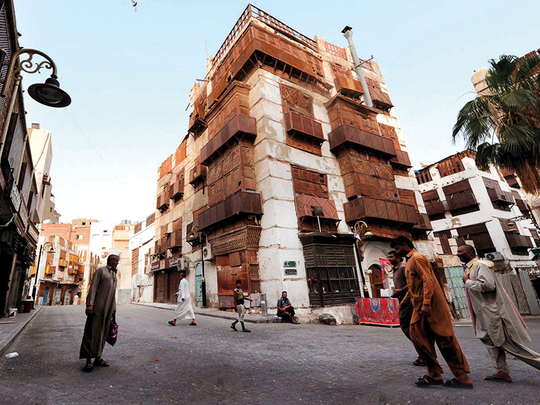
Jeddah: Ahmad Kamal, 70, has lived in Saudi Arabia for 35 years. As far as he is concerned, the kingdom is home. But a few months ago, he was asked to leave his job of four years with ROI ME, a private marketing company. He had to make way for a Saudi national to take his place as the country moves to employ more nationals amid a surge in unemployment due to a drop in oil prices–a trend felt around the entire Gulf.
Ahmad Kamal comes from a successful family in Pakistan where his father was a well-known architect, and his mother, an Oxford graduate in English literature.
He graduated from the prestigious University of Punjab in Lahore, where he too studied English literature.
Following this, he worked with a government bank.
But when his brother, Farouq, who was working in Taif at the time, fell very ill, Kamal decided to move to Saudi Arabia with his mother to be by his brother’s side.
- Shaikh Ahmad Kamal | An expat in Saudi Arabia
Kamal recalls the first few months in the country, which were tough as he didn’t speak any Arabic.
“I remember being at the grocery store and trying to explain what I wanted to buy to the sales clerk – it was challenging!” he told Gulf News.
However, it didn’t take long for Kamal to adjust.
He found a job at the Education Ministry in Jeddah and began to study Arabic.
During this time, he interacted a lot with Bedouins.
“I learned a lot about their rich culture and respected them – and received even more respect in return,” Kamal said.
Three decades later, Kamal finds himself leaving the place that became his home.
Most of his memories are here—many happy ones, but some sad.
His two children were born here, but also it was where his mother, brother and wife passed away.
“Saudi Arabia is not like any other country. It is Al Balad Al Ameen,” he said, citing the Quranic description of Makkah as a ‘haven of peace’.
- Aslam Abdul Sattar, 25 | Pakistani expat who was born in Jeddah
Having lived here for three decades, Kamal witnessed a huge transformation of Jeddah into a modern city.
“When I first came here, the population was sparse. There was little rush, no traffic jams. Now, all spheres of life feel rushed,” he said.
While Kamal is unhappy to leave the place he knows as home, he says he has come to terms with the situation.
Back home in Pakistan, he says he doesn’t plan on retiring anytime soon.
He owns a plot of agricultural land which he intends to develop.
“I plan to work until my last breath,” he says with a smile.
‘The only home I have ever known’
25-year-old Pakistani Aslam Abdul Sattar was born in Jeddah.
His father worked as a chauffeur and the family lived in the southern, poorer side of the city.
Abdul Sattar recalls wonderful memories from his childhood.
“There was a very strong community spirit. I had a lot of fun in my neighbourhood, playing football with my friends, celebrating Ramadan and Eid together. We used to set up a TV outside for all the neighborhood children to watch football together,” Abdul Sattar told Gulf News.
After graduating from high school, he developed a passion for photography, took courses in it, and started photographing city life in Jeddah.
“I wanted to capture and document the city I grew up in so I could remember it always and treasure the memories I built here,” he said.
He started a new job at a local company, handling IT and photography.
But soon he found himself in conflict with his employer.
At about the same time, Abdul Sattar had to accompany his ill uncle to Pakistan—his first trip outside Saudi Arabia.
When he applied for the routine exit/re-entry visit, he was shocked to discover his passport had been stamped with a final exit visa.
Abruptly, the only life he ever knew was coming to a close.
He remembers his last day in Jeddah in great detail.
“It was a Friday, and I was flooded with memories of my life here,” he said.
The diversity of Jeddah with its large expatriate community was something he always marveled at.
“I would wake up early, drink Ethopian coffee, eat breakfast at a Pakistani restaurant, go to Friday prayers at a local mosque, have lunch at a Yemeni restaurant, and then have Turkish coffee at night!”
He too was sad to leave but says he is no longer angry.
“Whatever happened, I know it is for the best,” he says.
But adjusting to life in Pakistan is proving difficult for Abdul Sattar, who while fluent in Arabic, speaks little Urdu.
Now he finds himself in a ‘foreign’ country even though it is the one his passport claims is his own.
All of his family still lives in Jeddah.
He finds himself pouring over the photographs he took in Jeddah—bitter sweet reminders of the only place he knew as home.
“I left Jeddah, but Jeddah will never leave me”.
-Ahmad Sabri and K. Balkhi are independent journalists
-With inputs from Layelle Saad/GCC Middle East Editor










